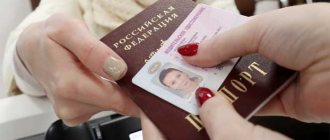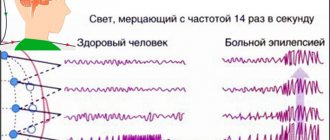In order to encourage a non-payer of alimony to repay the resulting debt, bailiffs, on a personal initiative or at the request of the alimony recipient, can forcibly take away his right to drive a car and other vehicles. Of course, the bailiffs do not take the ID in the literal sense, i.e. they come to the debtor and confiscate the document itself, and transmit information to the traffic police that such and such a citizen is limited in the right to drive vehicles for non-payment of alimony. Then traffic police officers enter this information into their database.
Debtors are deprived of their driver's license, as a rule, until the following circumstances occur:
- Until they repay the debt to the alimony recipient in full.
- Until there are grounds to lift this restriction. For example, such grounds include the release of the alimony through the court from paying the remaining part of the debt; a judge making a decision canceling a bailiff’s order imposing a ban on the debtor to drive a car; resolution of the head of the bailiff department to lift the ban.
However, it should be taken into account that the bailiffs do not have the right to make such a decision regarding the alimony payer when the loss of the right to drive a car poses a threat to the existence of the defaulter, as well as in some other cases specified in Russian legislation. More information about which categories of citizens have legal immunity from the application of this restrictive measure to them and how they can deprive a driver’s license for failure to pay alimony will be written below. In addition, citizens who have suffered from the illegal actions of the bailiff can complain to the court and have the illegal restriction lifted.
Conditions for deprivation of a driver's license in case of arrears in child support
The conditions that allow the bailiff to restrict the validity of a driver’s license are indicated with comments to them in the table below. It should be noted that the actions of the bailiff will be legal only if all these conditions are met simultaneously.
| List of conditions | Legal comment |
| Collection of alimony, the recipient of which is a young child, a disabled or needy ex-spouse or other dependents, occurs on the basis of a valid court decision or a notarial alimony agreement. | This means that the bailiff must act on the basis of a document giving the alimony recipient the right to demand financial support from the obligated person. Such documents according to Russian legislation are:
|
| Debt for alimony or other enforcement proceedings, above 10,000 rubles. | This rule does not allow the imposition of strict restrictions on the debtor for very small amounts of debt. However, this rule does not apply when a citizen’s alimony debt is insignificant, for example, 5,000 rubles, and in other enforcement proceedings his debt is much higher, for example, loan debts amount to 100,000 rubles. In such cases, the bailiff may deprive the defaulter of the right to drive a car. |
The debtor does not have valid reasons to explain the debt, since he:
| The following are considered valid reasons in Russia:
|
| Application by the creditor with a request to restrict the defaulter in a special right or the bailiff’s own initiative. | Only the collector and the bailiff have the right to initiate the imposition of this restrictive measure on the alimony provider. Other persons and government agencies do not have the corresponding right. However, this fact does not prevent the debtor from appealing the bailiff’s decision to the district court if he wishes. |
Ban on the debtor leaving the Russian Federation
Article 67 of the Law provides for the right to establish restrictions on the debtor’s departure from the Russian Federation. This restriction applies not only to citizens of the Russian Federation, but also to foreign citizens and stateless persons. A travel ban can be applied in cases where the amount of debt exceeds 10,000 rubles or the obligation is of a non-property nature.
The relevance of using this tool is increasingly increasing, since traveling outside the Russian Federation for leisure or business travel is increasingly becoming a necessity. At the same time, the restriction of such a right will become an additional incentive for the debtor to independently fulfill his obligations.
Who cannot have their driver's license revoked?
This list includes:
- Defaulters for whom having a driver's license is their only or primary legal source of livelihood. The main source of funds is understood as an activity that generates more income compared to income from any other type of activity. Thus, bailiffs, based on a tax return, income certificate or other document, assess the debtor’s earnings for each source of income, but not the time spent on each type of income-generating activity.
- Alimony recipients living in places with limited access to any type of transport, if a car for them and members of the debtor’s family is the only means of ensuring and maintaining their livelihoods.
- Alimony payers to whom the bailiff provided an installment plan or deferment of debt payment.
- Alimony payers whose debts in all enforcement proceedings are less than 10,000 rubles.
- Citizens who do not pay child support and use a car or other vehicle due to disability.
- Persons who financially support a disabled person of group 1 or 2 who has official medical confirmation of disability, or a disabled minor child.
When it is impossible to prohibit
In enforcement proceedings, such a measure of influence is not always applied to citizens. It is impossible to exclude citizens from driving a vehicle:
- Who were not notified that their case was being transferred to the bailiffs. It should be noted here that the notification is sent by registration. Even if the debtor did not receive it because he does not live there, he is still considered notified.
- The person has been notified, but the period for voluntary repayment of the debt has not yet expired.
- For the debtor, a car is a vital means of transportation, since he himself is disabled or is dependent on a disabled person. The disability groups that relate to this item are first, second or disabled child.
- The debtor and his family members live in a place that cannot be reached without a car.
- A vehicle for the debtor and his family is the only source of income.
- The debt amount is below 10,000.
- There is a delay in fulfilling the requirements of the writ of execution.
- A person repays the debt in installments, about which there is a corresponding note in the writ of execution.
We invite you to familiarize yourself with: The right of lifelong inheritable ownership of land plots
Prohibition on driving vehicles
The imposition of this restrictive measure on the debtor prohibits him from managing:
- Any vehicles (cars, buses, trucks).
- Boats, cutters, jet skis and other water transport.
- By planes and helicopters.
- ATVs, mopeds, tricycles and motorcycles.
- Self-propelled vehicles.
Please note the difference between the concepts of “ban on driving a vehicle” and “seizure of a vehicle”. A ban on driving a vehicle implies the suspension of a driver's license, carried out temporarily, as a result of which the defaulter is deprived of the opportunity to freely get behind the wheel. Seizure of a vehicle implies deprivation of the opportunity to dispose of the vehicle, i.e. carry out any transactions with it, for example, exchange, rental, purchase and sale, transfer for free use, donation. The law does not prohibit using a seized car for personal or business purposes.
Procedure for suspending a driver's license
This procedure follows the following algorithm:
The bailiff receives an executive document (alimony agreement, writ of execution for a court decision, court order) and issues a resolution to initiate enforcement proceedings, which is sent by mail to the defaulter. Typically, the decree specifies the account details to which the debtor must transfer money within 5 days from the date of receipt of the letter, and then bring the bailiff a receipt confirming payment.- If the alimony payer ignores the bailiff’s demands, he issues a resolution on temporary restriction of the right to drive vehicles, in which he explains that the debtor is obliged to comply with this ban, and warns of administrative liability for violating the ban. Administrative liability includes compulsory work from 20 to 50 hours or deprivation of a driver’s license for up to 1 year; a fine for this offense is not provided for by law. This resolution must be necessarily approved by the head of the bailiff department or his deputy and personally delivered to the alimony defaulter, and also sent to the alimony recipient and to the traffic police.
The claimant can begin the procedure for deprivation of the right to drive vehicles on his own initiative. To do this, he needs to write a statement and submit it to the bailiff conducting enforcement proceedings against the alimony. The application form can be downloaded from here. The bailiff then proceeds as follows:
- Checks information about whether enforcement proceedings have actually been initiated against the alimony payer and whether he really has an outstanding debt resulting from the guilty actions of the debtor.
- Checks whether there are grounds not to apply this restrictive measure to the defaulter.
- If there are no legal grounds not to apply restrictive measures against the alimony recipient, he issues a resolution and restricts the debtor’s right to drive vehicles, sends copies of the resolution to the alimony payer, the alimony recipient and the traffic police.
When deprivation of special rights applies
Restrictions on the right of management can only be applied to debtors who are individuals. The law also applies to persons with the status of individual entrepreneurs.
Restrictive measures may be applied to debtors if there are unfulfilled:
- alimony obligations;
- obligations arising from injury to health;
- obligations in connection with the death of the breadwinner;
- obligations to compensate for damage caused by a crime;
- responsibilities of a non-property nature related to raising children;
- obligations to pay fines for violations of administrative norms regulating the liability of drivers who hold special licenses.
It is important to note that for debts under fines, the law allows the application of restrictions only on the type of special right for the exercise of which penalties were imposed.
For example, it is possible to restrict a citizen’s right to drive a car if he has a debt on fines for violating traffic rules of the Russian Federation in an amount exceeding 10,000 rubles. However, such a debtor cannot be deprived of a special right in the form of driving a water vehicle.
The application of an enforcement action is possible only if the debtor has not voluntarily fulfilled the requirements contained in the executive document within the prescribed period.
If the debtor has valid reasons that resulted in a delay in fulfilling the obligation, deprivation of rights for debts does not apply.
The law does not define the concept of “good reason” and does not specify the criteria for recognizing certain circumstances as valid. As a rule, over time, law enforcement practice through the efforts of lawyers, prosecutors and judges will bring certainty to the interpretation of this term.
Procedure for restoring driver's license
To lift a driving ban, at least 1 of the following grounds must be present:
- Full repayment of alimony debt. The debtor must provide the bailiff with a copy of the document confirming payment (receipt, account statement).
- A court decision to release the defaulter from repaying the debt.
- A court decision to cancel a bailiff's order imposing a ban on the debtor to drive a car.
- Resolution of the head of the bailiff department to lift the restriction.
The bailiff checks the information specified in the list above regarding the possibility of lifting the restriction within 1 day from the moment it is received. If the information is confirmed, then he is obliged to issue a resolution stating that the debtor has been restored to the right to drive any vehicles, and have it certified by the head of the bailiff service or his deputy. Copies of the resolution are sent to the post office on the same day for sending to the traffic police, the alimony recipient and the alimony payer.
After receiving this decree, it is advisable for the driver to keep it in the car for about 1-2 months. This is necessary to protect yourself from possible misunderstandings that may arise when communicating with traffic police officers, since electronic databases are not updated immediately, and changes are not reflected in them in a timely manner.
Procedures for deprivation and suspension of validity of a temporary residence permit
Deprivation of rights for non-payment of alimony, loans and other public debts occurs by decision of the senior bailiff or his legal deputy. Initially, the debtor is sent a corresponding notice, where he is given 5 days to pay the debt, after which the court decision to seize the document comes into full force.
In the absence of any reaction from the draft dodger, no one will issue a second warning.
Instead, information about the offender will be sent to the traffic police department for further execution of the punishment by traffic police.
Moreover, the bailiffs do not have the right to physically take away the driver’s license. But in accordance with the legislation of the Russian Federation, a citizen deprived of a driver's license is charged a penalty every month in the amount of 7% of the debt amount. And the restriction applies until the person avoiding responsibility pays off his debts, or until the period established by the court (in case of suspension of the certificate).
List of documents for filing a claim
Decrees of bailiffs are appealed by citizens according to jurisdiction to the district court. This court must be located at the location of the bailiffs department on whose staff the defendant is.
The reasons for disputing are usually:
- Imposing restrictions on a citizen from whom the bailiff, by law, cannot take away his driver’s license.
- Violation of the requirement for personal delivery of the order to the debtor.
Once the alimony payer receives a decree that violates his rights, he must act very quickly, since he only has 10 days to file a claim. A sample application to the court is here. When drawing up an application, it is necessary to correctly write all the details of the decision being appealed and provide all the arguments proving its illegality.
The following documents usually serve as attachments to the claim:
- Resolution on suspension of a driver's license.
- Resolution on initiation of enforcement proceedings.
- Evidence showing the illegality of the decision, for example, a medical certificate of disability; debt calculation (if the debt is less than 10,000 rubles); an employment contract or work record book, which confirms that the plaintiff works as a driver; a court decision to release the plaintiff from paying alimony debt.
- Document confirming payment of the duty.
At the next stage, the plaintiff should proceed to pay the fee. Details must be obtained from the court’s website on the Internet. The fee can be paid at any bank, through Internet banking, through electronic money or through the State Services website.
A claim can be filed in 4 ways:
- Deliver the documents in person.
- Submit electronically through State Automated System “Justice”.
- Send by mail.
- Transfer through a representative by proxy.
If the case is not classified as complex, then its proceedings will not take more than 10 days after the court receives all documents. In rare cases, when a complex and complicated case is being considered, the chairman of the district court increases the trial period to 1 month.
Administrative proceedings are convenient for the applicant in that it does not require his mandatory presence in the courtroom during the hearing. Therefore, to win a case, in many cases it is enough to competently draw up a claim and support your arguments with evidence attached to the claim.
Of course, the judge can accept the bailiff’s arguments and refuse to satisfy the plaintiff’s claims. In this case, you need to prepare an administrative appeal within 1 month after the final form of the court decision is made and submit it to the regional court. If the bailiff loses the case, he must cancel the contested decision within 30 days and inform the court and the administrative plaintiff about this.
Arbitrage practice
The case was heard in the Industrial District Court of Stavropol, Stavropol Territory, in November 2021.
The demand of the administrative plaintiff was that the decision of the defendant (bailiff), according to which the plaintiff was limited in the right to drive vehicles, was declared illegal. In support of his claim, he stated that:
The defendant is actually conducting enforcement proceedings, in which the plaintiff is involved as a person who has a debt for alimony.- Enforcement proceedings were initiated legally, namely on the basis of a court order from a magistrate.
- The defendant did issue a decree restricting the plaintiff's rights, but did not mail or personally serve the document on the plaintiff. The applicant received the contested decision only during a visit to the bailiffs department.
- The plaintiff works as a driver, therefore, the actions of the bailiff deprive him of the main source of funds necessary for life.
Having considered the case, the judge came to the conclusion that the claim should be partially satisfied. The arguments given were:
- Alimony was collected from the plaintiff on the basis of a valid court order, which must be executed immediately from the moment of announcement.
- Next, the defendant initiated enforcement proceedings based on the court order and issued a corresponding resolution. As a result, the plaintiff incurred a debt, in connection with which the defendant decided to take away his rights to drive vehicles and issued a decree to this effect. The applicant did not agree with the decision and appealed it.
- From the case materials it follows that the plaintiff works as a driver at LLC Stavropolavtotrans Association and confirms this fact with a personal driver card.
- This work is the main source of livelihood for the plaintiff, so the defendant could not take such a measure against him as suspension of his driver’s license.
- In addition, the defendant did not provide evidence clearly indicating that the appealed decision was served on the other party to the proceeding or sent to it by mail. Thus, the defendant's actions are contrary to the law.
- However, the court cannot oblige the bailiff to cancel the appealed decision, since the court does not have the right to interfere with the powers and scope of activity of bailiffs. Thus, the bailiff must cancel the decision independently, but in pursuance of the court decision.
Regulatory framework
| Laws | Articles |
| tax code | Article 333.19 establishes the amount of the state fee paid for consideration of an administrative claim. |
| Code of Administrative Procedure | Chapter 22 describes the procedure for appealing orders issued by a bailiff. |
| Federal Law “On Enforcement Proceedings” | Article 67.1 establishes the rules by which bailiffs impose a ban on driving vehicles on persons with alimony debts and lift this ban. |
| Code of Administrative Offenses | Article 17.17 sets out the types of punishment applied to an alimony payer who has violated the ban on driving a car or other vehicles. |









